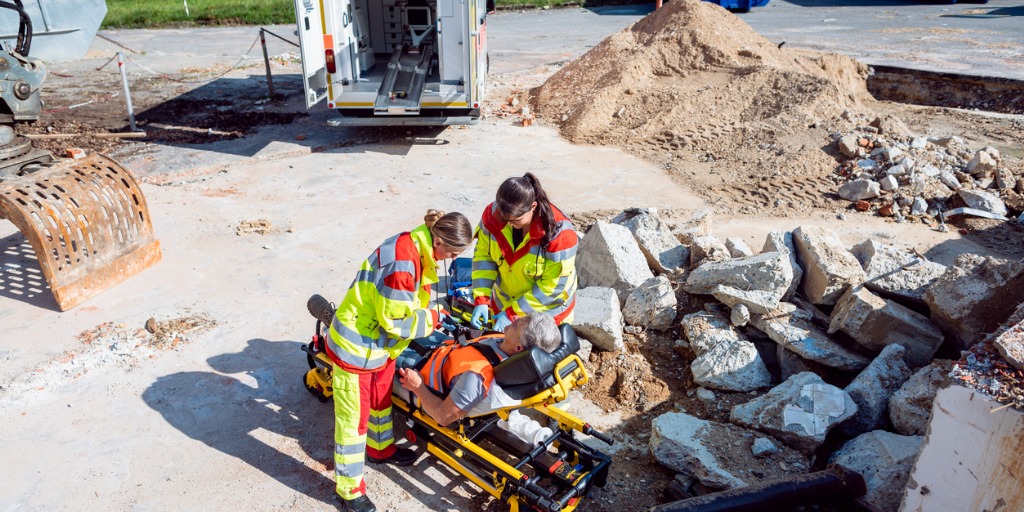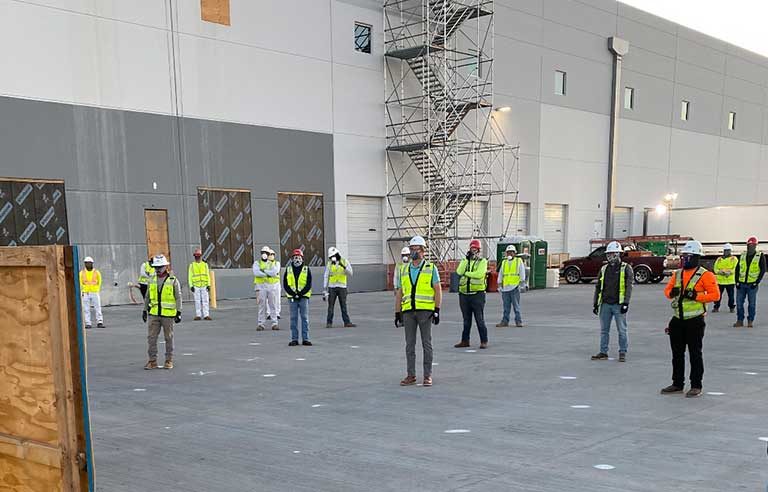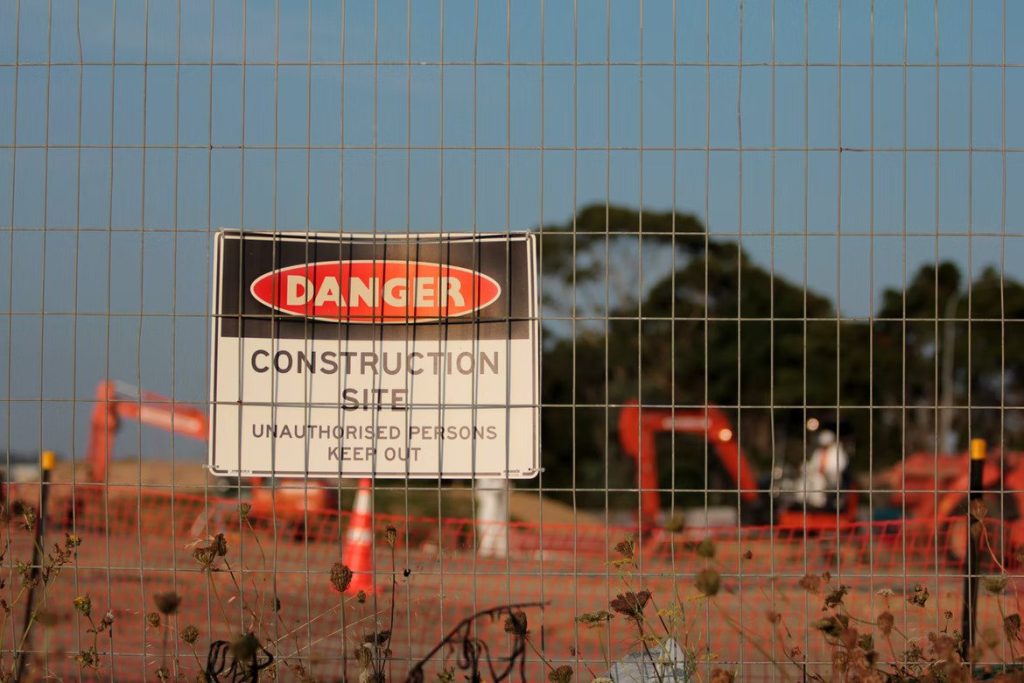Personal Protective Equipment on Construction Projects.
A Lifesaver in Disguise
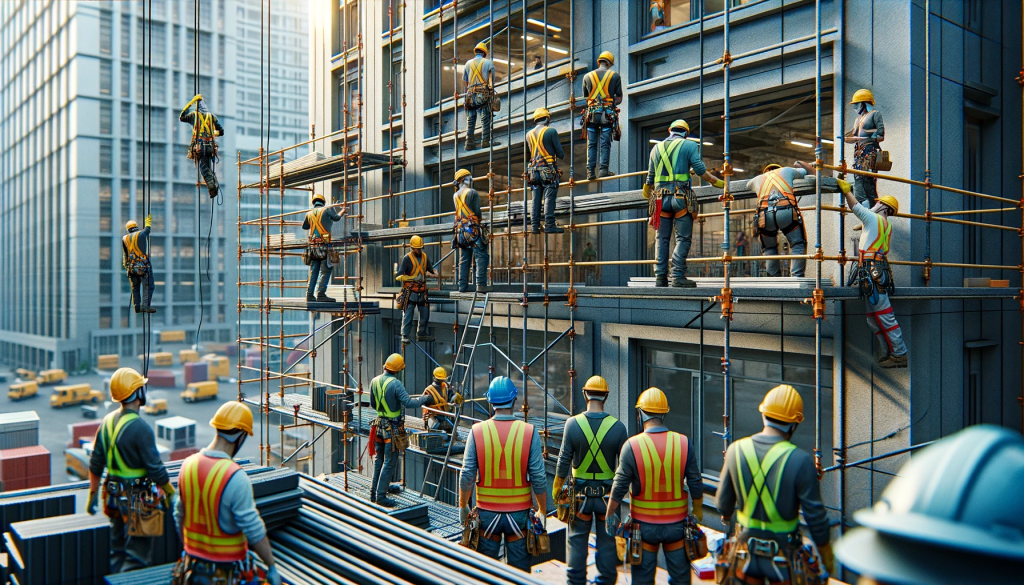
When you think of superheroes, images of caped crusaders flying across cityscapes or wielding magical hammers might spring to mind. But in the world of construction, heroes wear hard hats and safety goggles. Yes, we’re talking about Personal Protective Equipment (PPE) – the unsung guardians of construction workers.
Introduction to PPE in Construction
The importance of PPE can’t be overstated. It’s the thin line between a regular day at work and an unplanned trip to the emergency room. PPE includes steel-toe boots that save toes from becoming pancakes under heavy materials. It includes high-visibility vests that keep workers from blending into the background like chameleons.
The Foundation of Construction Safety
Safety in construction isn’t just about following rules. Safety is about creating a culture where the well-being of every worker is top priority. It’s about ensuring everyone gets to go home in the same condition they arrived in – preferably without extra bumps, or bruises. The role of PPE in this endeavor is pivotal. It’s not just equipment; it’s a worker’s best buddy, standing guard against the many hazards that dot the construction landscape.
Types of Personal Protective Equipment
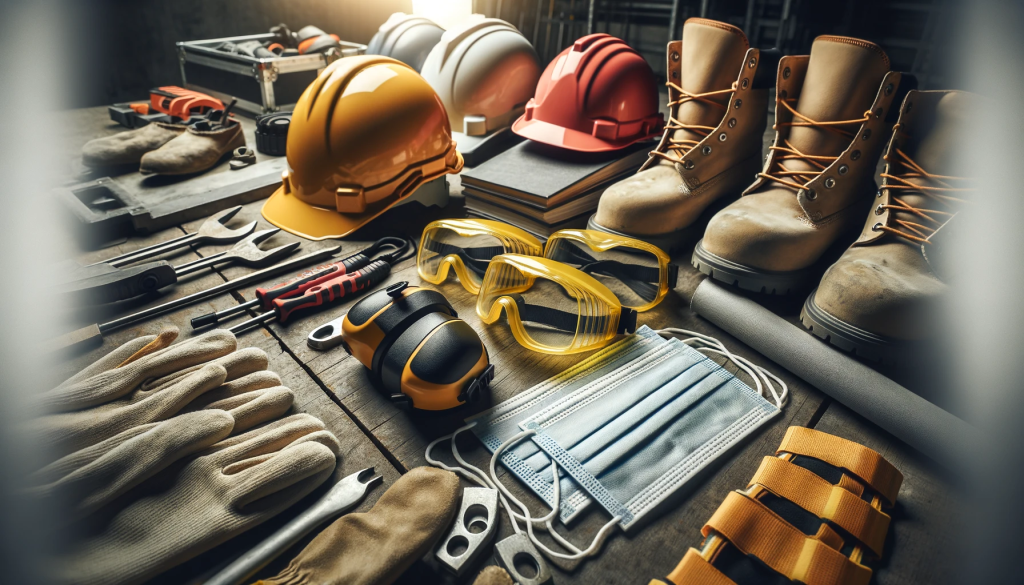
The arsenal of PPE is vast and designed to protect every inch of a worker from head to toe. Head protection, like hard hats, aren’t just fashion statements – they’re lifesavers. Eye and face protection, from safety glasses to full-face shields, ensure workers can actually see the beauty of their labor once the project is complete. And respiratory protection? Well, breathing breathing in dust and chemicals is not the kind of “work experience” anyone wants.
Selecting the Right PPE for Construction Projects
Choosing the right PPE isn’t about picking the color that best matches your eyes. It’s a careful process that involves understanding the specific hazards of a job and selecting gear that can stand up to those challenges. It’s a bit like matchmaking – ensuring that every worker finds their perfect protective match.
Compliance and Regulations
Navigating the world of PPE compliance is crucial. Compliance ensure that safety practices meet or exceed standards set by bodies like OSHA, keeping sites safe and workers protected. Think of it as the rulebook for the game of safety – one that everyone needs to play by.
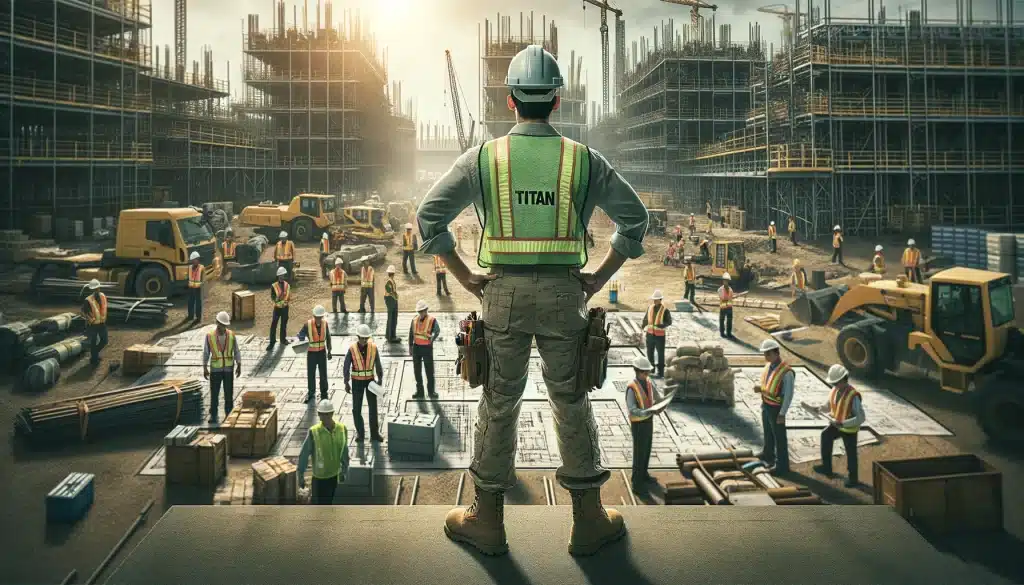
Implementing a Successful PPE Program
A successful PPE program is more than just handing out gear and hoping for the best. It involves training, regular maintenance checks, and fostering a safety-first mindset. It’s about making safety gear as natural a part of the work attire as the ubiquitous construction belt.
Challenges in PPE Implementation
Sure, challenges like getting workers to consistently wear PPE can be tough! But with the right strategies, like engaging training sessions the hurdles can be overcome.
The Future of PPE in Construction
The future of PPE is bright, with innovations making gear more effective and comfortable. Imagine smart helmets that can detect fatigue or vests that cool you down on a hot day. The possibilities are endless. The goal is to make wearing PPE as second-nature as putting on a seatbelt.

Defying Gravity: The Art of Fall Protection
When it comes to working at heights, gravity is not a friend. That’s where fall protection enters the scene, as a literal lifeline for those daring to work where the air is thinner. This category of PPE includes harnesses, lanyards, safety nets, and anchorage systems – all designed to prevent a storyline that involves an unplanned rapid descent.
Choosing the right fall protection gear is a bit like selecting the right parachute – you definitely want one that opens. A full-body harness that distributes the force of a fall over a larger area of the body, lanyards that absorb the energy of a fall, and safety nets that catch workers as if they’re in a circus act, are all part of this vital category of PPE.
The key to effective fall protection is not just wearing it but knowing how to use it. Training becomes as crucial as the equipment itself, ensuring that workers can trust their gear to perform when it matters most. It’s about making safety a habit, something as automatic as checking your phone in the morning.
Taming the Beast: PPE for Working Around Electricity
Electricity, the invisible force that powers our tools and lights up our sites, can turn from friend to foe in an instant. Working around electricity demands respect, caution, and the right PPE to prevent shocks, burns, or more severe injuries. This includes rubber insulating gloves, arc flash clothing, dielectric footwear, and face shields designed to fend off electrical hazards.
Rubber insulating gloves serve as a worker’s first line of defense against electric shock, providing a non-conductive barrier between electricity and the wearer. But these gloves aren’t just any gloves; they’re meticulously tested to withstand specific voltages. Pair them with leather protectors, and you’ve got a dynamic duo that’s tough enough to take on electrical work with confidence.
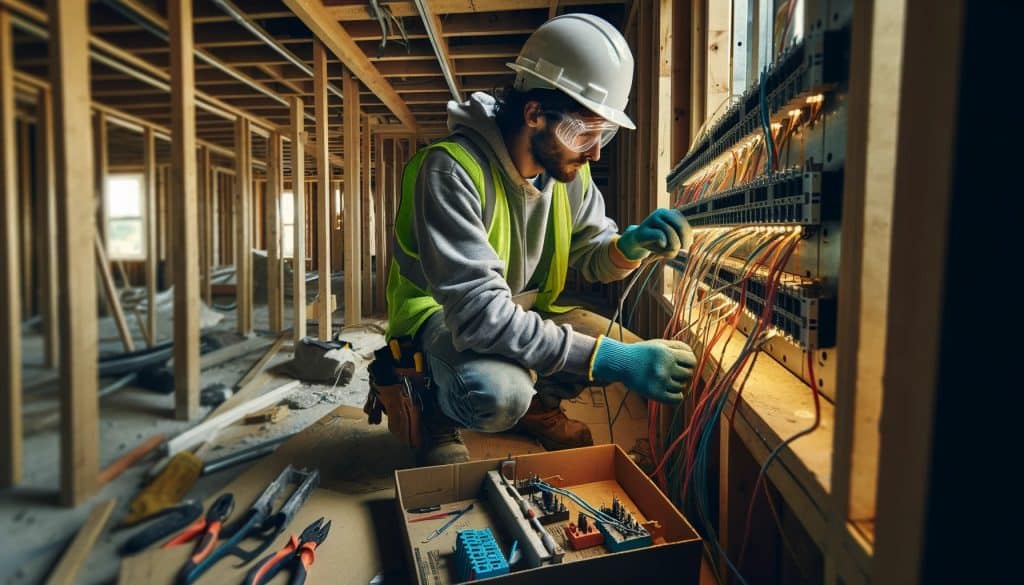
Arc flash clothing, on the other hand, is all about minimizing burn risk during an arc blast – an explosive release of energy caused by an electrical arc. This specialized attire is rated by the level of protection it provides, ensuring that workers are dressed to meet the specific hazards of their task.
And let’s not forget about the feet – dielectric boots provide insulation, ensuring that electricity doesn’t find a path to the ground through a person. It’s footwear that not only saves toes from heavy objects but also keeps workers grounded, quite literally, when electricity decides to make an unexpected appearance.
Tying it all together
As we bolster our understanding of PPE with insights into fall protection and electrical safety, it’s clear that the gear is more than just attire. It’s a comprehensive system designed to tackle the multifaceted dangers of construction work. From defying gravity to taming the beast of electricity, the right PPE is essential for not just surviving the workday but thriving in it.
The construction industry’s commitment to safety, mirrored in the advancement and adoption of PPE, reflects a broader dedication to ensuring that every worker has the tools and knowledge to protect themselves against the inherent risks of the job. As we continue to innovate and improve, the future of construction safety looks promising, with PPE at the heart of this evolution.
Conclusion
In the grand scheme of things, PPE might not seem as interesting as other aspects of construction. But its importance cannot be understated. It’s the hero gear that ensures the real heroes of construction can keep building our world safely. So, here’s to the hard hats, the goggles, and the safety vests – the true marks of a construction superhero.


